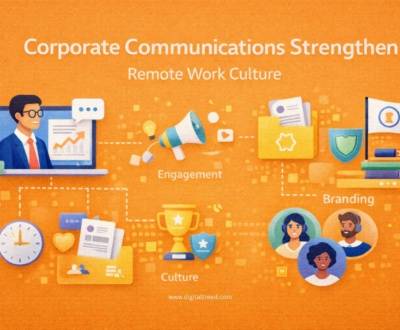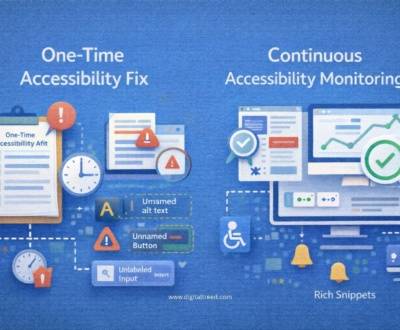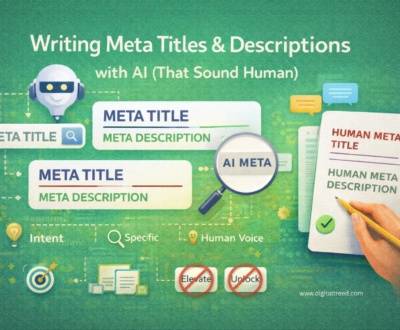In today’s digital world, technology isn’t just a nice-to-have—it’s important for any business. From seamless consumer experiences to efficient data management, a strong IT infrastructure is the backbone of modern organizations. Yet, keeping a high-performing IT system needs specialized learning and resources that many businesses may not have in-house. This is where external IT support comes in. It delivers important help for businesses looking to make the most of their technology and remain competitive.
In this article, we’ll delve into the world of external IT support, exploring its different forms, the multitude of advantages it provides, and the key elements to consider when selecting the right provider for your special needs. Whether you’re new to tech or have years of experience, learning the details of external IT support can make a big distinction for your business.
External IT Support: What Does It Really Mean?
Outsourced IT, or external IT support, is when businesses work with third-party providers to take some or all of their tech requirements. This can include everything from everyday technical problems to managing complicated infrastructure. Rather than depending solely on an in-house IT team, companies tap into the expertise and resources of external experts, such as IT support in Melbourne, to ensure their technology runs smoothly and securely.
Outsourced IT services cover a broad range and can be tailored to fit the specific requirements of each business. Some typical services include:
- Cybersecurity: Setting up robust security measures to safeguard sensitive data, protect against cyber threats, and ensure compliance with rules.
- Data Backup and Recovery: Making regular backups of vital data and establishing dedicated recovery procedures to minimize downtime in case of data flop.
- Technical Help Desk: Delivering immediate assistance for technical problems, troubleshooting issues, and answering user queries.
- Network Management: Monitoring and keeping the stability and performance of networks, providing seamless connectivity and data flow.
- Software and Hardware Support: Supporting and updating software applications, operating hardware installations, and troubleshooting hardware problems.
- IT Consulting: Delivering strategic advice on technology initiatives, aligning IT with business objectives, and making the most out of IT investments.
- Cloud Services: Migrating data and applications to the cloud, handling cloud infrastructure, and optimizing cloud resources for efficiency and scalability.
This is just a glimpse into the varied world of outsourced IT. The exact services each provider offers can vary, so it’s necessary to evaluate your business requirements and find a partner that fits your objectives and budget. For instance, if you’re looking for managed IT services in Los Angeles, make sure the provider has a solid reputation and can satisfy your particular requirements.
Pros and Cons of Outsourced IT Support Services
Every business enterprise has pros and cons. It is important to remember these details so you can make informed decisions regarding your outsourcing of IT support.
Pros
Outsourcing IT support services has several upsides. But the following pros are perhaps the most effective.
- Active IT Support
Computing has ongoing concerns and issues. Without ongoing learning, a worker who has been with your company for years has restricted knowledge of new issues. An IT specialist who has performed with clients in various industries has more experience solving computing issues. In short, outsourced IT support services have more tech knowledge because they stay present.
- Prompt Implementation
Outsourced IT support can presently implement software and programs. So, your workers can use the program company-wide. Maintaining such tasks in-house could stall your operations for days or weeks. Outsourced IT support services let you deploy a program without interrupting daily operations.
- Predictable Budgeting
Relying on the contract, outsourced IT support services have a fixed monthly rate. Random computer problems won’t overwhelm you. You can anticipate the same monthly rate unless you scale up or down.
Cons
Of course, trusting your IT functions to a third-party provider is not risk-free. Here are some cons associated with outsourcing IT support services:
- Security and Privacy Issues
Most outsourced IT support services are trustworthy about keeping your privacy and details secure. However, if you operate with a provider without knowing their security protocols, you risk selecting a vendor with inferior privacy measures.
- Misaligned Values
The right provider will work to assist you achieve your business goals. The wrong outsourced IT provider might insist on methods and systems that could potentially decrease functional capability and efficiency or obstruct your operations.
- Possible Downtime
You could experience downtime if there are no available technicians to solve your problems right away. Avoid this by utilizing a dedicated IT aid desk for your company. The dedicated IT specialists will serve no other accounts except your own, so you can expect them to always be available when required.
Essential Considerations When Choosing External IT Support
Choosing the right external IT support provider is important to a successful partnership. To make a wise decision, keep these essential considerations and best practices in mind:
- Data Privacy Matters: Make sure you comprehend how the provider handles your data. Where is it held? Who has access? What are their data retention policies? A clear and transparent data privacy agreement is necessary. You should also know who owns the data and how it can be recovered if you decide to complete the partnership.
- Embrace Continuous Improvement: Technology is always evolving, and so should your IT methods. Select a provider dedicated to remaining ahead of the game. This applies regularly updating software, adopting new technologies when it makes purpose, and proactively dealing with possible vulnerabilities.
- Measure What Matters: Set clear performance metrics to track the effectiveness of your external IT support. This could include reaction times for technical problems, uptime for essential systems, and customer satisfaction ratings. Regularly review these metrics to confirm the provider is meeting your expectations and delivering value.
- Prioritize Security and Compliance: Your business data is very valuable, so guarding it should be a top priority. Confirm the provider adheres to industry-standard security practices, such as encryption, firewalls, and periodic vulnerability assessments. If your industry has detailed compliance requirements (e.g., HIPAA for healthcare), confirm that the provider can satisfy those standards.
Conclusion
The decision to leverage external IT support is an asset in your business’s future. By comprehending the advantages, selecting a provider that aligns with your goals, and promoting a strong partnership, you’ll be well on your path to harnessing the power of technology to drive creation, efficiency, and development.
I have been serving web content with my passionate writing skills since 2020. My skills have benefited clients from 20 countries, resulting in 10x audience interactions, improved readability, and SEO-friendly content.

About us and this blog
We are a digital marketing company with a focus on helping our customers achieve great results across several key areas.
Request a free quote
We offer professional SEO services that help websites increase their organic search score drastically in order to compete for the highest rankings even when it comes to highly competitive keywords.









